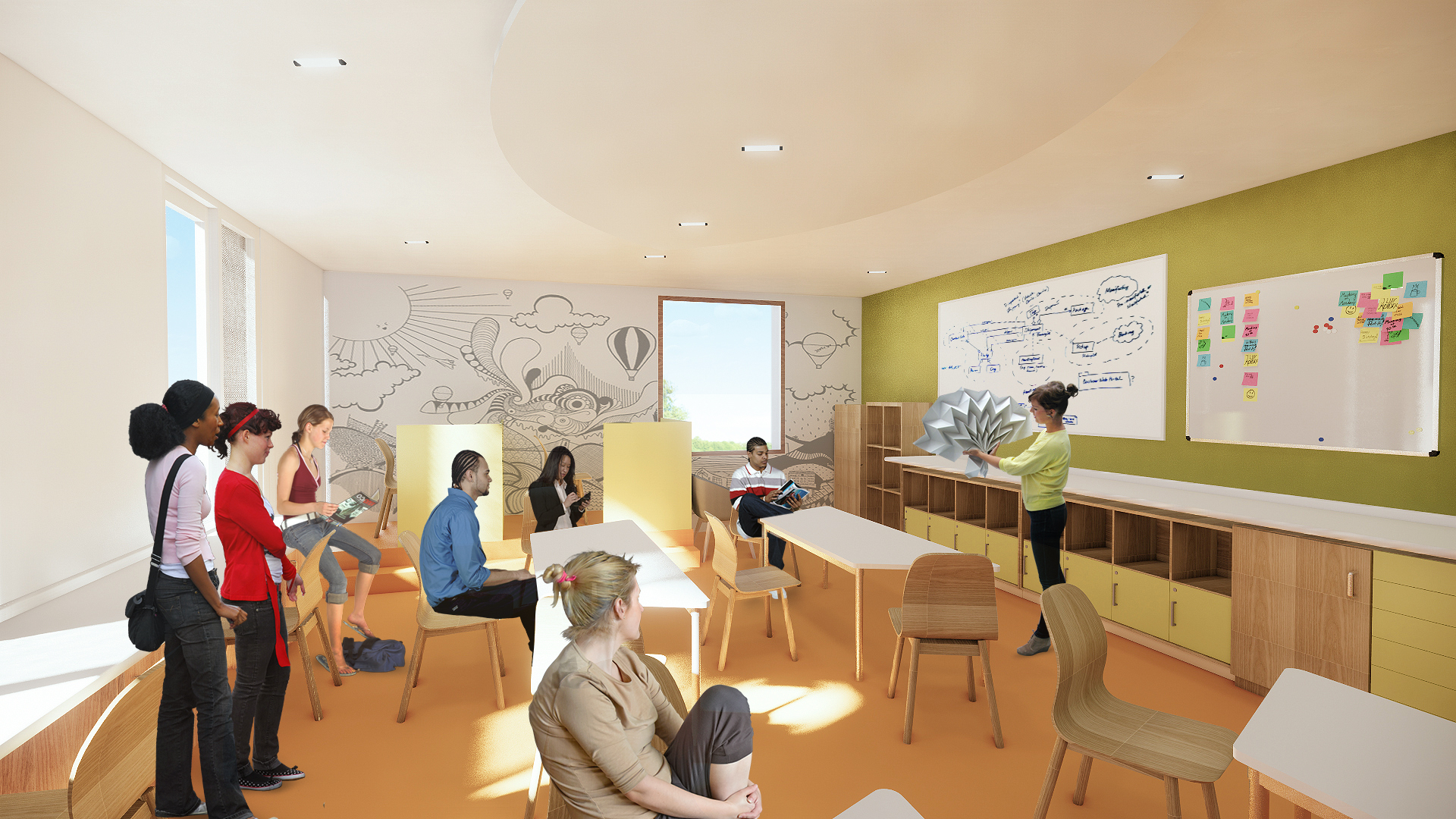Going to school when you’re in hospital
“There is routine, a school, teachers, classrooms, progression and people talking about life beyond this period in hospital, a focus on the future,” said Maarten Crommelin, Head of School.
“But with the Bethlem and Maudsley School, no educational journey is imposed on our young people — we start with their needs first and then provide a personalised education approach based on that. Each journey is different.”

Maarten Crommelin, Head of School at the Bethlem and Maudsley School
The school teaches young people who are inpatients or use community services at two sites, the Bethlem Royal Hospital in Bromley and at Maudsley Hospital in Denmark Hill.
While some young people join the hospital school from schools they will return to following their time at the Trust, some young people don’t yet have a school placement or have fallen out of the system. As a result, the school works closely with families, carers and community teams to support young people to reintegrate with their schools in the community following their time in hospital.
During the Covid-19 pandemic, some of these processes changed, but the school remained open and teachers adapted quickly to remote teaching.
“We were focussed on making sure we could reach all our pupils, virtually and face-to-face and have worked to support our pupils in remaining engaged with daily education, preparing for the future, building assessment evidence for last year’s interrupted GCSEs and achieving qualifications whilst in hospital” said Maarten.
“We are working to equip our pupils with what they need to succeed in the next steps of their education pathways, and look forward to our day patients returning and to be able to resume seamless reintegration for pupils back to their schools in the community.”
The school, which has just received an Outstanding OFSTED inspection, also offers careers education, helps young people to identify college placements, organises school trips to the theatre and encourages young people to continue with hobbies. It is also forming partnerships in the wider community, currently working together with the City of London Sinfonia and Young Minds.
Maarten added: “We continue to work with the hospital and the teams we work with in shared working to support young people. As a school we need to be building on our third outstanding OFSTED and developing our outstanding practise further for the benefit of our learners.”
The Bethlem and Maudsley Hospital School has an exciting future. The Pears Maudsley Centre for Children and Young People, which is set to open its doors in 2023, will be the new home to the Bethlem and Maudsley Hospital School’s departments based at the Maudsley site.
“We are pleased to have worked closely with the designers and architects so the space in the new building will enrich pupils’ learning and education,” said Maarten.

Architects impression of a classroom in the new Pears Maudsley Centre — doors open in 2024
The school is in a unique position to be able to support children and young people with mental health needs in the wider community and internationally at a time when children’s mental health has been highlighted as a priority.
Maarten added: “We work closely with Southwark to share our expertise and together with our partners at the Trust we’re also putting hospital education on the international stage. We have a lot to look forward to.”
Categories
Follow Us
For the latest updates and news, follow us on our social channels.







Recent Comments